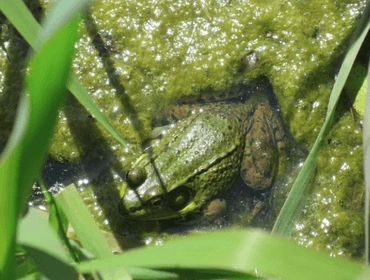1
The sin of Judah is written with a pen of iron, With the point of a diamond, Graven on the tablet of their heart, And on the horns of your altars,
2
As their sons remember their altars and their shrines, By the green tree, by the high hills.
3
O My mountain in the field -- thy strength, All thy treasures -- for a prey I give, Thy high places for sin in all thy borders.
4
And thou hast let go -- even through thyself, Of thine inheritance that I gave to thee, And I have caused thee to serve thine enemies, In a land that thou hast not known, For a fire ye have kindled in Mine anger, Unto the age it doth burn.
5
Thus said Jehovah: Cursed [is] the man who doth trust in man, And hath made flesh his arm, And from Jehovah whose heart turneth.
6
And he hath been as a naked thing in a desert, And doth not see when good cometh, And hath inhabited parched places in a wilderness, A salt land, and not inhabited.
7
Blessed [is] the man who trusteth in Jehovah, And whose confidence hath been Jehovah.
8
And hath been as a tree planted by waters, And by a rivulet he sendeth forth his roots, And he doth not see when heat cometh, And his leaf hath been green, And in a year of dearth he is not sorrowful, Nor doth he cease from making fruit.
9
Crooked [is] the heart above all things, And it [is] incurable -- who doth know it?
10
I Jehovah do search the heart, try the reins, Even to give to each according to his way, According to the fruit of his doings.
11
A partridge hatching, and not bringing forth, [Is] one making wealth, and not by right, In the midst of his days he doth forsake it, And in his latter end -- he is a fool.
12
A throne of honour on high from the beginning, The place of our sanctuary,
13
The hope of Israel [is] Jehovah, All forsaking Thee are ashamed, And `My apostates' in the earth are written, For they have forsaken Jehovah, A fountain of living waters.
14
Heal me, O Jehovah, and I am healed, Save me, and I am saved, for my praise [art] Thou.
15
Lo, they are saying unto me: `Where [is] the word of Jehovah? pray, let it come.'
16
And I hastened not from feeding after Thee, And the desperate day I have not desired, Thou -- Thou hast known, The produce of my lips, before Thy face it hath been,
17
Be not Thou to me for a terror, My hope [art] Thou in a day of evil.
18
Let my pursuers be ashamed, and let not me be ashamed -- me! Let them be affrighted, and let not me be affrighted -- me! Bring in on them a day of evil, And a second time [with] destruction destroy them.
19
Thus said Jehovah unto me: `Go, and thou hast stood in the gate of the sons of the people, by which kings of Judah come in, and by which they go out, and in all gates of Jerusalem,
20
and thou hast said unto them: Hear a word of Jehovah, ye kings of Judah, and all Judah, and all inhabitants of Jerusalem, who are coming in by these gates,
21
Thus said Jehovah, Take ye heed to yourselves, And ye bear not a burden on the day of rest, Nor have ye brought [it] in by the gates of Jerusalem.
22
Nor do ye take out a burden from your houses on the day of rest, Yea, any work ye do not do, And ye have sanctified the day of rest, As I have commanded your fathers.
23
And they have not hearkened nor inclined their ear, And they stiffen their neck not to hear, And not to receive instruction.
24
And it hath been, if ye certainly hearken unto Me, An affirmation of Jehovah, So as not to bring in a burden By the gates of this city on the day of rest, And to sanctify the day of rest, So as not to do in it any work --
25
Then entered by the gates of this city have kings and princes, Sitting on the throne of David, Riding in a chariot, and on horses, They, and their princes, the man of Judah, And inhabitants of Jerusalem, And this city hath remained to the age.
26
And they have come in from cities of Judah, And from suburbs of Jerusalem, And from the land of Benjamin, And from the low country, And from the hill-country, and from the south, Bringing in burnt-offering, and sacrifice, And present, and frankincense, And Bringing praise [to] the house of Jehovah.
27
And if ye do not hearken unto me to sanctify the day of rest, And so as not to bear a burden, And to come in at the gates of Jerusalem on the day of rest, Then I have kindled a fire in its gates, And it hath consumed the high places of Jerusalem, And it is not quenched!'







